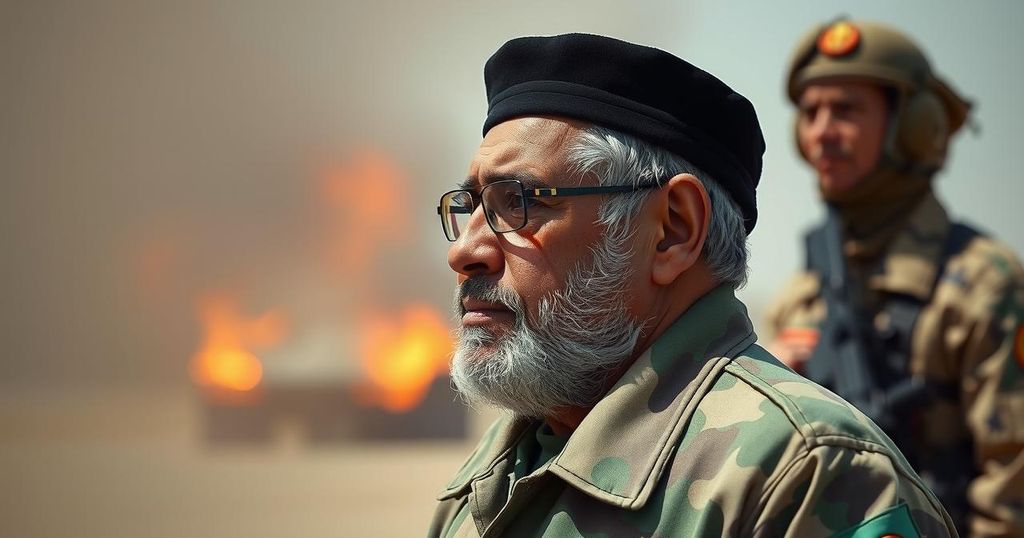Libya’s Prime Minister Rejects Russian Military Reinforcements Amid Ongoing Conflict
Libya’s Prime Minister Dabaiba opposes Russian military reinforcements in the country, stressing the need to keep Libya out of global conflicts. He seeks to prevent the transfer of Russian weapons, which he believes would complicate internal crises. Meanwhile, increased scrutiny from the US and reports of military transfers from Syria cast a shadow over Libya’s stability.
The ongoing struggle between Libya’s UN-backed government and Russia’s military ambitions in the nation has intensified following recent reports of Russian reinforcements in eastern Libya. Prime Minister Abdul Hamid Dabaiba has vocally opposed the notion of turning Libya into a battleground for global power struggles, emphasizing the need to prevent foreign interference from escalating local conflicts.
Dabaiba stated that Libya must not serve as a venue for international disputes, voicing concerns that foreign military assets would only exacerbate the country’s already fractured state. His administration is determined to reject any transfer of Russian weaponry, declaring that such actions would only deepen Libya’s internal turmoil.
The Prime Minister has additionally sought clarification from the Russian ambassador regarding these movements. The backdrop of this situation is characterized by a long history of conflict in Libya, following the 2011 uprising that removed Muammar Gaddafi. Libya remains divided, with the UN-recognized government in the west opposed by a rival faction in the east, which has enjoyed Russian backing for several years.
Recent intelligence reports indicate that Russian forces are moving military equipment from their bases in Syria to eastern Libya. These developments have raised alarms within the Dabaiba administration, with calls for peace and stability overshadowed by reports of Russian activity involving cargo planes delivering advanced military gear.
Experts like Jalel Harchaoui have suggested that Dabaiba’s statements represent a significant shift in the landscape of international involvement in Libya, highlighting Russia’s need to navigate its presence amid changing dynamics in the region. As the US imposes stricter economic measures on Libyan leadership, including the Central Bank’s operations, scrutiny over possible corruption and foreign connections has increased.
The latest developments suggest that the situation remains fluid, with potential for economic sanctions aimed at key figures tied to illicit oil dealings and ties with Russia. As Libya grapples with the shadow of foreign interventions, the prospect of sovereignty versus international influence continues to dominate discussions about its future.
The political landscape in Libya has been marred by upheaval and division since the fall of Gaddafi in 2011. The nation is caught between a government recognized by the United Nations and a rival administration that seeks to assert control over the eastern region. Russia’s strategic interests in the area, particularly through military support, complicate the delicate situation, as local leaders like Dabaiba express opposition to external forces exacerbating the existing conflicts. The geopolitics of military support and the ramifications of economic pressure from Western nations are increasingly pivotal in determining Libya’s trajectory.
In summary, Prime Minister Abdul Hamid Dabaiba’s rejection of Russian military reinforcement reflects Libya’s struggle to maintain its sovereignty amidst external influences. The potential for enhanced conflict underscores the ongoing challenges faced by the country, as economic sanctions and scrutiny of corruption loom large. As foreign dynamics continue to evolve, the future of Libya remains uncertain, teetering between foreign military aspirations and local governance aspirations.
Original Source: www.theguardian.com




Post Comment